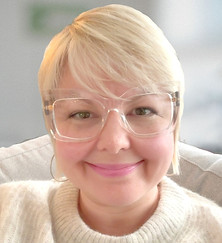
TM
Burlington: 3150 Harvester Rd., Suite 203

- In-Person Trauma Therapists in Hamilton & Burlington, Online Trauma Therapists in Canada, AF-EMDR Therapist in Hamilton -
Anxiety, Depression, PTSD, C-PTSD, Relational Trauma, Attachment Trauma, Childhood Abuse, Complex Trauma, Phobias and more...
AF-EMDR
Attachment Focused EMDR
What is EMDR?
Eye Movement Desensitization and Reprocessing (EMDR) is the preeminent treatment for trauma and other types of healing. It moves beyond talk therapy and works at the physical level to reorganize how memories and emotional systems in the brain are organized.
This in turn changes how your brain responds to distressing memories, bringing down the charge of emotions, and allowing you to feel safety and peace within your system.
EMDR calls upon our innate healing abilities using bilateral movement. Think about drumming and dancing and how those activities can feel peaceful, healing and transformative. We as humans already do this. We go for walks to let off steam (bilateral movement), we hop on a bicycle (bilateral), we rock babies (bilateral).
What is AF-EMDR?
Attachment Focused EMDR (AF-EMDR) is an evidence-based somatic therapy. It is an expansion of EMDR designed to go deeper than the standard EMDR protocol getting directly to the root of the problem for effective healing of multiple experiences. This mind-body approach can be necessary to address deep or ongoing relational wounds and attachment deficits. It is also flexible based on the culture, gender, background and experiences of each client.
AF-EMDR works by helping the brain form new neural networks to repair the impact of relational trauma. This approach is especially effective for clients struggling with anxiety, emotional dysregulation, or a sense of inadequacy linked to attachment wounds. By targeting how trauma is stored in the brain AF-EMDR supports meaningful shifts in both emotional and cognitive patterns. A key part of the process is building a strong therapeutic relationship, which creates the safety needed for lasting change.
The early bonds we form with our primary caregivers play a crucial role in our lifelong development. These bonds impact the safety and security we need so we can build healthy relationships as adults. If we don't develop secure attachments we may struggle with relationships and face mental health challenges as adults.
For EMDR therapy to be most effective it's important that clients feel able to sit with strong emotions as they arise. Our therapists carefully assess where you are at, and support you to resource yourself so that this is possible. Research shows that individuals with secure attachment styles tend to have an easier time navigating intense emotional experiences. Using AF-EMDR our therapists support you to make attachment repairs and heal so you can process your experiences and feel more peaceful and whole.
EMDR also relies on developing a trusting connection with your therapist, which can feel more challenging if you've experienced insecure attachment in the past. Our therapists use AF-EMDR to creatively and compassionately support you to make space in your system to feel seen, heard and held (by your therapist and by yourself).
This approach is optimal for those who have experienced childhood neglect, early loss, physical or sexual abuse, traumatic attachment, birth and medical trauma, and other deeply painful experiences.
*It is also suited to those who have tried the standard approach to EMDR and did not find it helpful.
Note: The use of bilateral stimulation (tapping) can be used in place of eye movement and can be a lot easier for those who would experience discomfort with eye movement. There are many ways to do this!
AF-EMDR feels a lot like a free-association exercise, and it works with the whole person -- somatic, emotional, cultural, and spiritual dimensions -- as a means to healing. It is client-centred and prioritizes a compassionate, attuned connection between you and the therapist. It will help you to explore your feelings, past experiences, thoughts, and behaviours in a safe and caring way.
Which is better for me? EMDR or AF-EMDR?
EMDR can help people process painful memories, emotions, and beliefs with less overwhelm and distress. It’s a powerful approach for many, but it’s not the best fit for everyone.This is often where AF-EMDR can be more helpful.
For individuals who have experienced long-term relational trauma, such as childhood neglect, emotional abuse, or abandonment, EMDR can sometimes be too activating, too soon. You may find it hard to stay grounded when strong emotions surface. You may also struggle to build the kind of trust and connection with a therapist that EMDR often requires -- especially if you are trying to heal from an insecure attachment style rooted in your early experiences. If this sounds like you then Attachment Focused EMDR (AF-EMDR) is likely a better fit.
You can learn more about the differences between EMDR and AF-EMDR.
Can your AF-EMDR therapists also use Standard EMDR?
Yes!
Our AF-EMDR therapists in Hamilton are trained in the standard protocol and the modified protocol.
They also have additional training to work with recent traumatic events.
Our AF-EMDR Therapists
You can work with an AF-EMDR therapist in Hamilton or online across Canada.
Our AF-EMDR therapists are uniquely qualified to support trauma and relationship issues in our community (and beyond) based on the deep training we have done with the Parnell Institute in California.
Anna
Level 2 AF-EMDR Therapist
Jenni (Owner)
Level 3 AF-AMDR Therapist
Learn more about AF-EMDR
Who better to explain Attachment Focused EMDR than Dr. Laurel Parnell?! She is the most experienced EMDR clinician on the planet. Dr. Parnell is a psychologist trained by Dr. Francine Shapiro who developed EMDR in the 80's. Over the past 33 years Laurel Parnell has expanded the model to treat the clients she works with who present with complex trauma and significant attachment issues -- such severe childhood abuse and neglect. This adaptation of EMDR is creative, deeply compassionate and culturally flexible.

